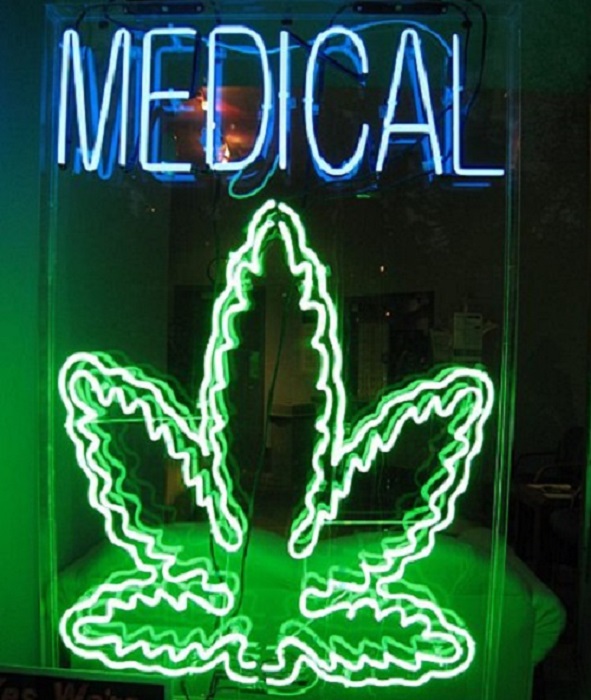The number of the latest medical marijuana bill was 555.
In the words of one lobbyist, it should have been numbered 666.
“The devil is in the details,” Katie Whisman of the nonprofit group Stand Up for Kansas told the Senate Federal and State Affairs Committee during a two-hour hearing Thursday.
Whisman was among more than two dozen opponents who testified in writing or in person Thursday against the latest variation of an attempt to legalize medical marijuana, this one portrayed as more restrictive than previous versions.
“It has been touted for months as highly restrictive, conservative and medically centric” said Whisman, who at one point during her career worked as an agent and executive officer for the Kansas Bureau of Investigation.
“This bill, instead, is dangerously broad, monopolistic and unprecedented,” Whisman said.
The bill, backed by a Wichita hemp cultivator, drew opposition from physicians, law enforcement, the state agriculture department, the Catholic Church and even Kansans who support legalization of medical marijuana.
With such overwhelming opposition, the bill was tabled.

“I appreciate all the information that has been shared with us today,” said Republican state Sen. Renee Erickson of Wichita before motioning to table the bill.
“And through this, it has become abundantly clear to me that this is not the conservative, restricted control program that it’s being characterized as,” she said.
Senate President Ty Masterson issued a statement following the committee’s decision.
“It has been my hope to have sincere discussions about a policy framework that combines meaningful regulation with legitimate and safe delivery of medical benefits to the people who need it,” he said.
“Unfortunately, the hearing demonstrated there were concerns with the bill presented and
approaches that deviate from that framework.
“As such, it was appropriately tabled and I thank the committee for its work. Discussions will no doubt continue in future sessions,” he said.
The bill was just introduced in the Senate 10 days ago with time running out in this year’s legislative session.
The bill called for legalizing a pilot program for distributing medical marijuana under tight restrictions that would sunset in 2029.
The bill set out restrictions on the number of operators who could have cultivated medical marijuana, how it would have been distributed and packaged, and licensing requirements for patients.
It also set criteria for in what forms it would have been distributed – no smoking or gummies – and what conditions would have qualified to purchase medical marijuana.
Medical marijuana would have been limited to pills, tinctures, patches, ointments, the cannabis flower or inhalation of vapors released by the noncombustive heating of medical marijuana.
The bill would have required patients and their caregivers who are at least 21 years old to have a valid medical marijuana certificate to purchase, possess or consume the drug.
Physicians could have issued a certificate if they were the patient’s primary care doctor and determined the patient suffered from a qualifying condition, including cancer, autism, Parkinson’s disease, chronic pain, multiple sclerosis and epilepsy, among others.
The bill outlawedmedical marijuana with a THC content in excess of 35%.
The bill also would have allowed the state health department to contract with no more than with four “medical cannabis operators” at any one time for cultivating and processing medical marijuana products in Kansas.
The operators would have had to pay the state a yearly $50,000 fee.
Sam Jones from Kansas Natural Remedies, the hemp cultivator supporting the bill, said the latest medical marijuana proposal was an attempt to address concerns raised about failed medical marijuana bills from the past.
“What we’re trying to do is give relief to patients while still addressing the concerns that you have about medical cannabis,” Jones told senators.
“We tailored this bill to address to the things that other states have gotten wrong and to address the thing they may have gotten right,” Jones said.
“This is a limited bill. This is supposed to be a pilot program,” he said.
The bill, he said, was “to give proof that medical cannabis isn’t going to cause the end of society,” he said.
Erickson pressed Jones about a March news story that indicated his company has lobbied for broad medical marijuana legislation but changed its tactics to appeal to conservative lawmakers and their constituents with a pilot program.
She asked him about a quote from the story where he said he was trying to pave the way to a “more fully realized medical cannabis program.”
“What is your intent down the road?” she asked.
Jones said there was no appetite for recreational marijuana in Kansas.
Jones said his goal was to ease an increase in supply to equal demand so the product doesn’t end up on the black market.
“Almost every single state has overshot demand with supply,” he said. “What happens when that happens, the product ends up on the black market.”
He said more operators could be added in the future as the program moves forward so they can meet the demand.
However, supporters of legalizing medical marijuana found the bill lacking, and even law enforcement thought the bill would be too expansive.
Amy Reid, an adviser and past president of the Kansas Cannabis Coalition, said the bill came up short because it didn’t include edibles, lacked patient education and handed the program over to a select group of four cannabis operators.
“By having only four growers in the state, it’s highly likely that they will not provide the strains of cannabis that many patients need for their conditions,” Reid said in written testimony to the committee.
“In addition, this monopoly of growers/processors/distributors will get away with charging whatever they want because they have no competition.
“It’s as if this bill was created specifically to benefit a select few – certainly not patients.”
Sarah Stephens of the Kansas Cannabis Chamber of Commerce shared a similar view in written testimony to the committee.
“Designed to monopolize the medical cannabis industry and unnecessarily restrict patient access, (the bill) is illegal, unfair and fraught with contradictions,” she said.
“It hands over all of what should be available business opportunities to just four companies,” she said.
“Those four companies are then legally allowed to monopolize medical cannabis by growing, processing and distributing.”
KBI Director Tonny Mattivi testified against the bill, as did Attorney General Kris Kobach, Johnson Count District Attorney Steve Howe, Bryan Clark of the Kansas Troopers Association and the Kansas Sheriff’s Association.
Mattivi said there was no “legitimate medical need” for the bill. He said he believed the ultimate goal of the bill was to legalize recreational marijuana.
Mattivi warned senators that the legalization of marijuana in any form would bring organized crime to Kansas.
“That’s not something I believe,” he said. “That’s something that is apparent in the data as we look across the country.”
Mattivi dismissed arguments from supporters of the bill that it was so restrictive that it would not invite criminal activity.
“The hard part of that is that criminals tend to not follow the rules,” he said.
“If we open up that market, we’re going to see organized criminal seep in,” he said.
A fiscal analysis revealed that the bill would have cost the state at least $15 million to enforce and carry out.
It would have cost the Highway Patrol about $9 million in fiscal years 2025 and 2026 and the state health department a little more than $5 million over the same time frame.
The state agriculture department believed that part of the bill would have reduced the number of individuals who were able to participate in agency’s industrial hemp program.
They department noted that the bill required at least one director, manager or an officer of a business contracting with the state as a medical cannabis operator to have had a license as a hemp producer under the commercial industrial hemp act for two years.
The department said it believed the requirement, in conjunction with federal agriculture regulations, would have prohibited a hemp producer from growing any type of marijuana.













